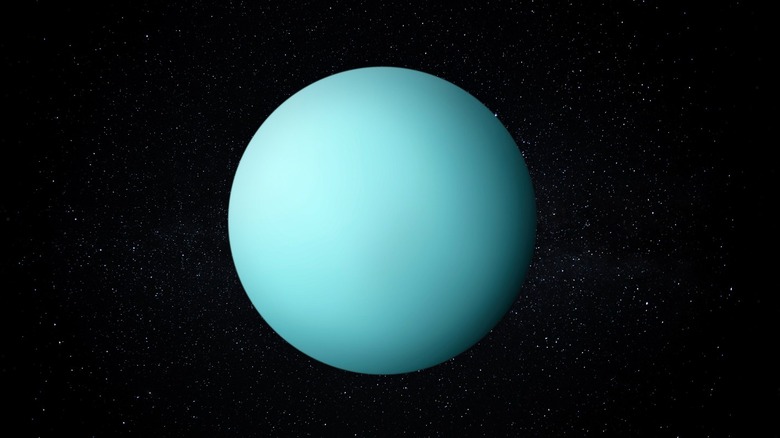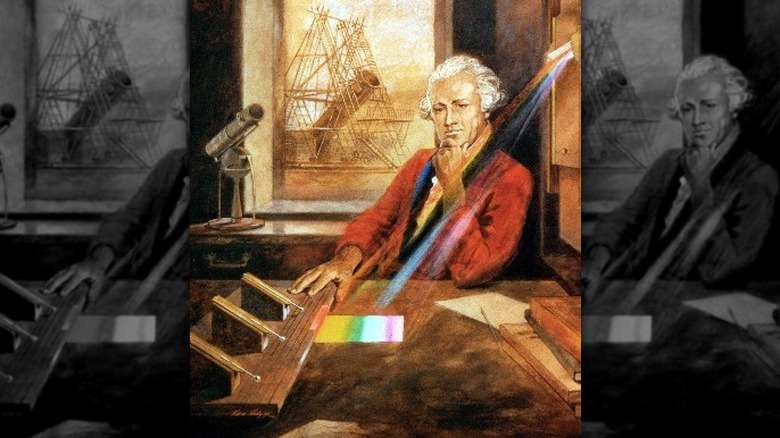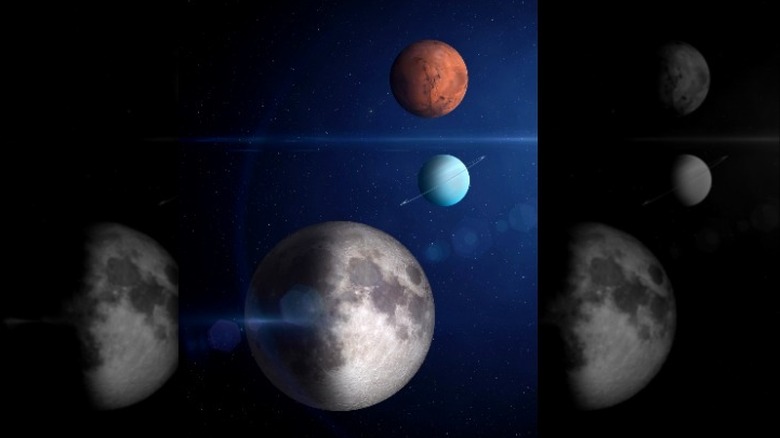Uranus Originally Had This Very Ordinary Name
Elementary school science teachers dread the day they must inform a rowdy bunch of eight-year-olds that there is a planet named Uranus. As History explains, it was named after a Greek god, teachers explain to their pupils, but this fact does nothing to abate the sea of raucous laughter. Surely every effort to teach the class about the planet Uranus itself is interrupted at regular intervals by bouts of laughter. Attempting to tell the class about Uranus' atmosphere and moons are of no avail. Only one fact is truly retained by these comedians of tomorrow, and it is an immortal one: Uranus has a hilarious name.
However, if faced with a barrage of Uranus jokes at a party by a middle-aged person unwilling to let go of their elementary school toilet humor you may now have an opportunity to disarm these comedic masterminds with a distractingly weird fact. Uranus hasn't always had that name. Once upon a time, its name was George (via Space).
The Story of George & Its Beginning
While King George III of England was losing the 13 colonies now known as the United States, he was also acquiring a planet — or, rather, the planet was acquiring his name. When the king's astronomer William Herschel officially spotted the seventh planet from the sun in 1781, he thought it was the perfect opportunity to honor his patron (via History). He decided to break previous naming traditions by veering away from Roman gods.
Instead, Herschel named the planet Georgium Sidus (George's Planet/George's Star/Georgian Planet, via NASA and Cracked). Unfortunately, other astronomers and members of society were displeased — most notably the French, via Forbes – as King George had already been the namesake of arguably more than his fair share of terrestrial objects here on earth. Instead of Georgium Sidus, some astronomers called it Herschel or Neptune — the eighth planet from the sun which was not discovered until the mid-1840s.
The Story of Uranus & George's End
The same year George's Planet made its debut, a German astronomer immediately renamed it, as Encyclopedia notes. Johannes Bode, who also earned fame with his detailed study of the seventh planet's orbit, disregarded Herschel's affinity for his king and referred to the planet as Uranus (via Space).
When the eighth planet from the sun was formally documented and named in 1846 as Neptune, astronomers and other scientists decided it was time to settle the matter of naming the seventh one — to that date, it was still Georgium Sidus, as Forbes points out. George? King George? Neptune King George? All were names proposed for the planet at various points in time, but the one that had so far stuck was Uranus.
The name that was eventually chosen by these scientists was neither English nor Roman: it was Greek (via Cracked). Uranus was the Greek god of sky and the heavens and so deemed a worthy name for the seventh planet from our star (via NASA). Although the name satisfied the debate over the planet's name, it has undoubtedly caused a few science teachers to roll their eyes as the toilet humor abounds.


